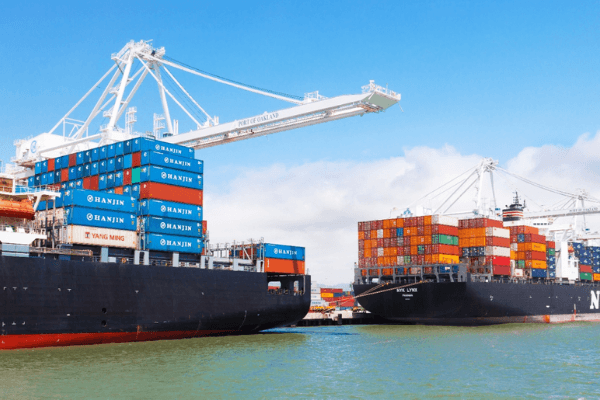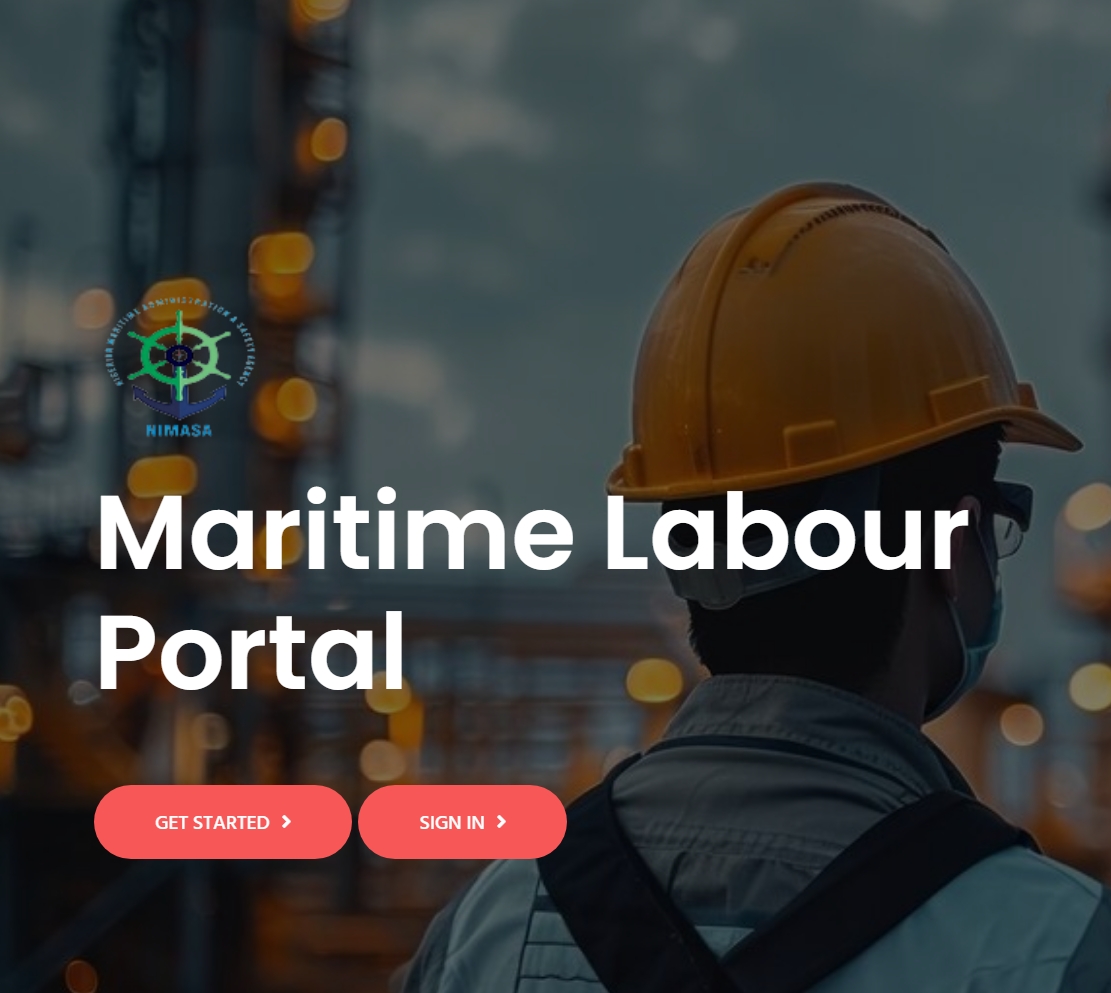Maritime Safety & Security Services
1.0. INTRODUCTION
2.0. ORGANISATION OF THE DEPARTMENT
The Maritime Safety and Seafarers Standards Department comprises of the following Divisions and Units:
- Maritime Survey and Certification Division
- Seafarers Standards and Training Division
- Emergency Services Division
- Marine Casualty Investigation/Accident
- Investigation Bureau
- Hydrographic Survey Services Unit
3.0. FUNCTIONS OF THE DIVISIONS AND UNITS
3.1. MARITIME SURVEY AND CERTIFICATION DIVISION
The Maritime Survey and Certification Division is the unit tasked with the Inspection, Survey and Certification of ships, Plan and type approval and monitoring of construction of newbuilds. The division further carries out the monitoring of Recognized Organisations and the standards of Marine facilities. The types of inspections carried out in the department include, Flag State Surveys and Port State Surveys.
- FLAG STATE INSPECTION(FSI) – Is the Agency’s control over vessels flying the Nigerian flag. This inspection can either be scheduled or unscheduled and aims to ensure compliance with Provisions of Merchant Shipping Act 2007, NIMASA Act 2007 and International Conventions and Codes which Nigeria has ratified and domesticated such as SOLAS, MARPOL 73/78, STCW, ISPS and ISM Codes. This inspection regime is carried out by both exclusive and non-exclusive surveyors.
- PORT STATE CONTROL
This covers the Agency’s mandated responsibility, control and management of foreign vessels calling and trading within Nigerian Ports with the view to prevent substandard vessels from entering Nigerian ports. This inspection is carried out in accordance with the Memorandum of Understanding on Port State Control for the West and Central Africa (Abuja MoU). The PSC report is usually entered on-line through the Abuja MoU Information System (AMIS).
The District Surveyors who are NIMASA Exclusive Surveyors (under direct employment of NIMASA) concentrate on the conduct of Port State Control Inspections since this function cannot be delegated to Non-Exclusive Surveyors.
Other functions carried out by the Division include;
- Tonnage Measurement of Ships and Load Line Surveys
- Appraisal and accreditation of Shipyards and Life-Saving
- Appliances Service Stations
- Plan & Specification Approval of ships
- Appraisal and Auditing of Recognized Organizations (Classification Societies) approved by the Flag Administration.
- Audit of ships and ship manager’s offices for International Safety
- Management Certification.
- Inspection of all new vessels built for Flag/Cabotage Operation.
- Review /Approval of International Safety Management Manual and Ship Security Plan (SSP).
- Radio Survey and Certification
- Authorization of Recognized Organisations for vessel’s certification on behalf of the Flag Administration.
- Accreditation/Inspection of Liferaft and Fire fighting Equipment Service Station.
4.1. SEAFARERS STANDARDS AND TRAINING DIVISION
The Seafarers Standards and Training Division consists of three (3) Sub Units namely – Quality Assurance, Examinations and Certification and Mercantile Marine units.
The Division is responsible for certification of Seafarers at all levels of competency necessary to man vessels and craft of all sizes in the Nigerian maritime industry in line with the mandatory requirements and recommendations of the International Convention on Standards of Training, Certification and Watchkeeping for Seafarers 1978 as amended (STCW).
This is achieved through supervision; monitoring; and accreditation of Maritime training institutions and colleges offering STCW programmes relating to seafaring activities. The essence of the supervision is to ensure quality of the training in accordance with the Quality assurance requirements. It also enhances maritime safety and the protection of the marine environment by prescribing and setting standards in line with the requirements of STCW Code. The functions of the Division include;
- Examination and Certification of Seafarers
- Appraisal and accreditation of Maritime Training Institutions.
- Mercantile Marine Superintendence and general welfare.
4.2. EMERGENCY SERVICES DIVISION
The Emergency Services Division was established as a dedicated Unit in the MSSSD to handle all responsibilities related to Maritime Emergencies.
The Division comprises of the following Units – Search and Rescue, Radio Surveys and the Air wing.
Its main functions include;
- Supervision and implementation of NIMASA Maritime SAR Plan and Emergency Management.
- Articulation of SAR Plan and allocation of Mobile SAR facilities.
Conducts Radio Surveys. - Supervising general maritime logistic support for patrols against piracy & other illegal activities in Nigeria Coastal waters.
- Monitoring of maritime disaster & emergency management administrative operation of NIMASA in close liaison with National Emergency Management Agency (NEMA).
- Coordinating INMARSAT/COSPAS-SARSAT policy liaison.
- Organizing SAR operations through MRCC & MRSC sector Bases.
Coordinating the Training of SAR Crew. - Operation of the Agency’s air fleet.
- Management of Global Maritime Distress Safety System (GMDSS)
- Dissemination of safety messages to ships with in our waters including broadcasting of Enhanced Group Calling.
4.3. MARINE CASUALTY INVESTIGATION UNIT
The primary objective of the Marine Casualty Investigation Unit is to conduct appropriate investigations on accidents and incidents on board Nigerian flagged vessels and foreign vessels with our coast, in order to find out the root cause and then promulgating actions, information and recommendations where appropriate with a view to preventing recurrence.
Under United Nations Law of the Sea (UNCLOS) 1982 Article 94, a flag state shall cause an inquiry to be held by or before a suitably qualified person or persons into certain casualties or incidents of navigation on the High seas.
UNCLOS article 2 recognizes that where a casualty occurs within the territorial sea or internal waters of a state, that state has a right to investigate the cause of any such casualty which might pose a risk to life or to the environment, involve the Coastal States search and rescue authorities, or otherwise affect the coastal state.
The Activities of the Maritime Casualty Investigation (MCI) Unit include;
- Examine and investigate all types of marine accidents to or on board Nigerian and Foreign ships in Nigeria territorial waters.
- Investigate casualties involving Nigerian Flag ships on high seas or other coastal states.
- Respond to unreported accidents through various information sources i.e. relatives etc.
- Respond to enquiries on legal and general issues relating to accidents involving foreign flags, crews etc.
- Contribute to safety at sea by determining the causes and circumstances of marine accidents.
- Develop measure for the prevention of marine casualties through lessons learnt from previous accidents.
- Maintain a database of reportable accidents which occurred within the Nigerian territorial waters which provides an overview of trends in marine accidents and forms comprehensive and readily accessible store of information.
4.4 HYDROGRAPHIC SURVEY SERVICES UNIT
The science of Hydrography originated from the need to make the sea safer for mariners. It entails the collection of such data as the depth of water, positions of navigational hazards, topography of seabed, tides and tidal stream data, currents measurements and wreck investigations among others. The data and information collected during a survey is used to produce nautical charts and other navigational products necessary for safe and reliable marine transportation, maritime commerce, offshore development, maritime security, environmental protection as well as search and rescue operations.
It is in realization of the importance of Hydrographic services in improving maritime safety and security that the Agency established in Hydrographic Support Services Unit in 2004 to lend support to the Navy in fulfilment of the Agency’s statutory obligations on Hydrography as spelt out in Chapter 5, Regulation 9 of the Safety of Life at Sea Convention (SOLAS 74)
The Unit is saddled with the responsibilities of acquisition, collation, processing and storage of all hydrographic data and information. However, the unit since its inception, has not fully attained its desired objectives due to lack of a dedicated survey boat, insufficient hydrographic and geodetic equipment coupled with inadequate trained staff among others. Despite the aforementioned shortcomings, the unit has been rendering professional advice and assistance to the Agency in the following areas:
- Hydrographic surveying of coastal areas to ensure the safety of navigation.
- Compilation and dissemination of Maritime Safety Information (MSI) and liaison with NIMET for meteorological broadcast in NAVAREA 2.
- Effective liaison with East Atlantic Hydrographic Commission for promoting Hydrography in the Sub region.
- Provide expert advice on International Seabed Authority matters in conjunction with the legal department of the Agency.
- Maritime Pollution Control-issues/programmes in conjunction with MEM department.
- Establishing of Central Charting Depot for ease of reference of surveys, SAR, anti –pollution and anti-piracy programmes.
- Advise and monitor Pre and Post Dredging Surveys in line with IHO specifications for Special Order surveys.
- Assist and advice the Nigerian Ports Authority and Shipping Company’s in Ports Development Plans.
- Investigation, location and Identification of wrecks in Nigeria’s waters and also conducts disproving searches of wrecks and other reported obstructions.
- Advise and monitors the installation of Aids to Navigation (AtoN) in line with the IALA buoyage system.
- Monitors the laying of submarine cables and pipelines in Nigeria’s waters.
- Monitors and evaluate all hydrographic surveys conducted by the Agency.
- Joint training efforts in maritime related areas both local and foreign.
- Liaison between NIMASA and the Nigerian Navy Hydrographic Office on Hydrography related issues.
The Hydrographic Survey Services Unit is headed by an Officer from the Nigerian Navy Hydrographic Office.


